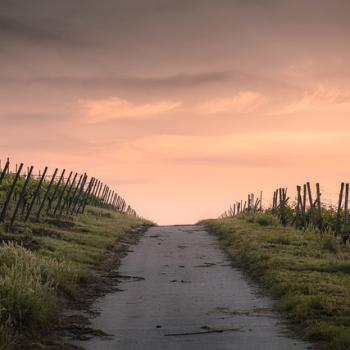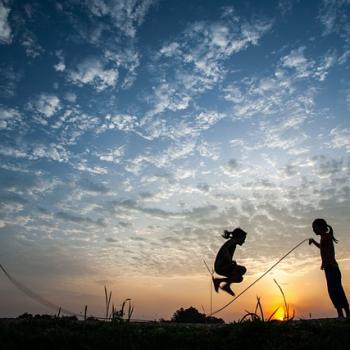
A reading from the Holy Gospel according to Luke:
Jesus told his disciples a parable,
“Can a blind person guide a blind person?
Will not both fall into a pit?
No disciple is superior to the teacher;
but when fully trained,
every disciple will be like his teacher.
Why do you notice the splinter in your brother’s eye,
but do not perceive the wooden beam in your own?
How can you say to your brother,
‘Brother, let me remove that splinter in your eye,’
when you do not even notice the wooden beam in your own eye?
You hypocrite! Remove the wooden beam from your eye first;
then you will see clearly
to remove the splinter in your brother’s eye.
“A good tree does not bear rotten fruit,
nor does a rotten tree bear good fruit.
For every tree is known by its own fruit.
For people do not pick figs from thornbushes,
nor do they gather grapes from brambles.
A good person out of the store of goodness in his heart produces good,
but an evil person out of a store of evil produces evil;
for from the fullness of the heart the mouth speaks.”
Can a blind person guide a blind person?
I don’t know, can they?
Will they not both fall into a pit?
I don’t know. Not necessarily. Why would they?
Blind people aren’t helpless.
I’m not blind, but I’m autistic and chronically ill. I know disabled people of all kinds have to stick together and help each other, because so often the abled won’t. Deaf people band together with other Deaf people, and speak their own language to one another, and have formed their own beautiful culture. Autistic people like to spend time with other autistics, and we often help each other. Surely blind people are also like that.
I once saw a blind couple walking together here in Steubenville, using their canes to feel where the sidewalk left off. Surely sometimes, one of them had to help lead the other, and they didn’t fall into a pit.
Some blind people see colors but not the outlines of shapes. Some blind people don’t see color at all, but they can make out the silhouettes of objects nearby. Some people are legally blind because their vision is terribly blurry and their eye muscles don’t work in tandem, but they can see things very close to their eyes. I once read a blind person describe what it was like when her father held up a beach ball on a bright sunny day and turned it so the colors caught the light. The blind girl could see that. She saw a blur of red, a blur of blue, a blur of yellow, though she couldn’t quite make out the edges of the ball. I once saw a blind woman making a video of how she tied the head scarf she was wearing for a holy day– she had to lean in close to her phone to see the camera image and double check what she was doing. Her eyes didn’t look in the same direction, but each saw something, and she was able to teach us how to style a scarf to look lovely as she was. I once read a blind person describing the muffin she was holding in her hand. “If I hold it close to my face, I can see yellow where the muffin is. But the blueberries don’t look blue to me. I can’t see the color blue. The berries just look dark.”
Could the blind lead the blind? Would they not both fall into a pit?
It seems to me that they could do it and avoid the pit. I think it would work, if they told the truth and trusted one another. Suppose the ones who see colors describe what they see, and then the ones who see outlines describe what the others missed. Suppose the one with no depth perception is one who leans close to the map to find the road. Somebody else uses their cane to feel the pavement, and they’re off. Why would they fall into a pit?
Isn’t the spiritual life the same?
In the spiritual life, isn’t it the case that no one has ever had 20/20 vision?
No one has seen God except God Godself, and none of us is God. We are all blind.
When I read the hagiographies of the great saints, I see that some of them experienced God while out in nature, and some while locked up in a cloister. Some found God in motherhood and some in the hermitage or the monastery. Some were good at writing treatises and some were good at writing poetry, and some were completely illiterate. Their experiences of God didn’t look the same. Sometimes they got into fights with one another about what they knew of God and how best to phrase it. But they were all saints.
No disciple is superior to the teacher. When fully trained, every disciple will be like his teacher. But they won’t be the SAME as the teacher. They’ll still all see things a little differently. That is a strength.
The blind couldn’t lead the blind if the little girl who saw the colors on the beach ball declared, “I see something blue!” and the one who saw the muffin retorted “Heretic! There’s no such thing as blue!” and refused to listen. The one who was trying to read the map might lose his place, and the one who was supposed to be looking for the outline of the pit might forget what she was doing, while they were fighting because what they saw didn’t match. Maybe then they’d fall.
But anyway, why is there a pit?
Did somebody dig the pit? Did a sink hole open because no one was maintaining the road? In that case, isn’t the problem the person responsible for the pit, and not the blind people?
Why do you notice the splinter in your brother’s eye, but do not perceive the wooden beam in your own? How can you say to your brother, ‘Brother, let me remove that splinter in your eye,’ when you do not even notice the wooden beam in your own eye?
How did the plank get into your eye in the first place?
A splinter could blow in the wind and get stuck by accident, but a plank?
The person with a plank in their eye must have been maimed or done it to themselves on purpose. Again, the problem isn’t the blind people just trying to find their way, each seeing a little bit and describing what they see. The problem is the person who crams a plank in their eye so they won’t have to see, and change their direction. That is what “repentance” means, after all. “Repentance” means changing your direction.
So often, in our Christian communities, the one with the plank in his eye chases after the blind people minding their own business, yelling that they’re ignorant heretics needing to be evangelized by the plank-eyed one. Maybe he stumbles into them, and that’s how they all fall into the pit.
Remove the wooden beam from your eye first; then you will see clearly to remove the splinter in your brother’s eye.
That can’t be true either. Your eyes won’t work properly after such a catastrophic injury. You’ll have to have humility, and join the group of blind people. You’ll have to apologize for shouting at them, and learn what they know about God. Then we can all stay out of the pit.
So long as all of us are steadfast in seeking the right way, and trustworthy in saying what we see, and humble in listening to one another, we’ll manage to find our way home.
If a false teacher with a plank in their eye tells us they see something that isn’t there, of course, we might go wrong. But if we’re all blind, how can we tell who is a false teacher?
We tell trees by their fruit.
No one can pick figs from thornbushes or grapes from brambles. Little seedlings can seem like the same plants when they’re first getting started, but soon the fruit appears, and then you know. Don’t trust the first fervency of any religious movement; trust what happens when it starts to bear fruit. Is the fruit abuse? Is the fruit cruelty? Are the disciples stuffing planks in their eyes so they destroy their own capacity to see and follow a terrible leader no matter what nonsense he tells them? That’s not good fruit.
The fruit of the Spirit is love, joy, peace, forbearance, kindness, goodness, faithfulness, gentleness and self-control.
We are all blind, and that’s not bad if we all admit it. We just have to keep our eyes open, and help each other. If we all follow where we glimpse the fruit of the Spirit, we can lead each other, and not fear the pit.
But because you say “I see,” your sin remains.
Mary Pezzulo is the author of Meditations on the Way of the Cross, The Sorrows and Joys of Mary, and Stumbling into Grace: How We Meet God in Tiny Works of Mercy.













